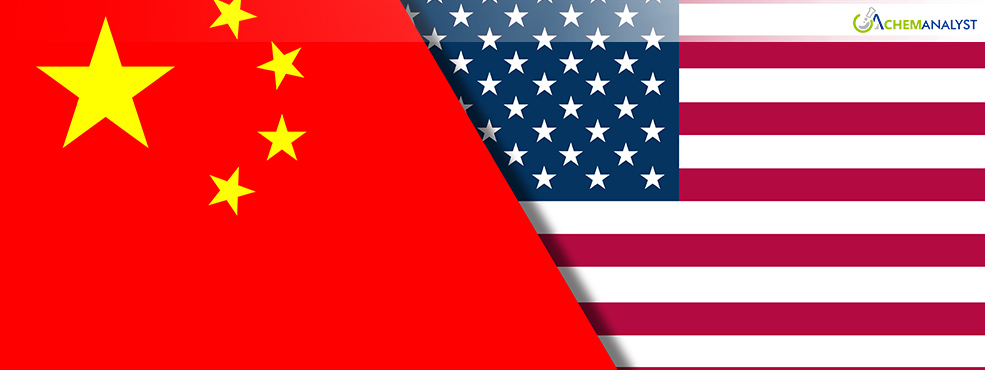Welcome To ChemAnalyst

The United States has firmed up its stance on tariffs against Chinese imports, announcing significant hikes on crucial solar panel components and tungsten products. This move is a part of US’s broader efforts to protect and grow its domestic green energy sector. This was unveiled on Wednesday November 11 by the U.S. Trade Representative (USTR) office. It caps off a review of tariffs imposed during former President Donald Trump’s administration, reflecting the continued tension between the two economic giants over trade and competition.
Under the new measures, tariffs on solar wafers and polysilicon will double to 50% starting in January 2025. These materials are critical to produce solar cells, a key component in the growing U.S. clean energy market. Additionally, tariffs on certain tungsten products, vital for industries such as aerospace and defense, will rise from zero to 25%. Tungsten is a strategic material, often used in military and high-tech applications, which the U.S. government sees as crucial for national security.
U.S. Trade Representative Katherine Tai defended the tariff hikes, stating that they were aimed at countering “harmful policies and practices” by China that have undercut American industries. “These tariff increases announced today will further blunt the harmful policies and practices by the People’s Republic of China,” Tai said in a statement. “These actions will complement domestic investments made under President Biden’s administration to boost the United States’ clean energy economy.”
The latest tariffs build upon previous actions taken by the Biden administration in May, which included significant hikes on Chinese goods in key sectors like electric vehicles, semiconductors, batteries, and solar cells. These measures were designed to reduce the U.S. economy’s dependence on China, especially in technologies central to the clean energy transition and national security.
China, which has strongly opposed the U.S. tariff measures, has warned that such actions could escalate the ongoing trade tensions between the two countries. The Chinese government has criticized the tariff hikes as protectionist and counterproductive, arguing that they disrupt global supply chains and raise costs for consumers and businesses.
The U.S. government, however, argues that higher tariffs will allow domestic producers to better compete with China’s massive overproduction of key goods, especially in the solar sector, where Chinese manufacturers have been accused of flooding the market with cheaper products. The Biden administration’s push for higher tariffs on Chinese solar components comes as part of its broader agenda to bolster the domestic clean energy manufacturing base. It includes measures to reduce reliance on foreign-made products and support the transition to renewable energy.
While Biden has largely maintained the tariff framework established during Trump’s presidency, he has taken a more targeted approach. Unlike Trump’s broad-based tariff strategy, which involved sweeping levies on a wide range of Chinese goods, Biden’s policies have focused on sectors critical to the U.S. economy, such as green technologies and national security industries.
We use cookies to deliver the best possible experience on our website. To learn more, visit our Privacy Policy. By continuing to use this site or by closing this box, you consent to our use of cookies. More info.
